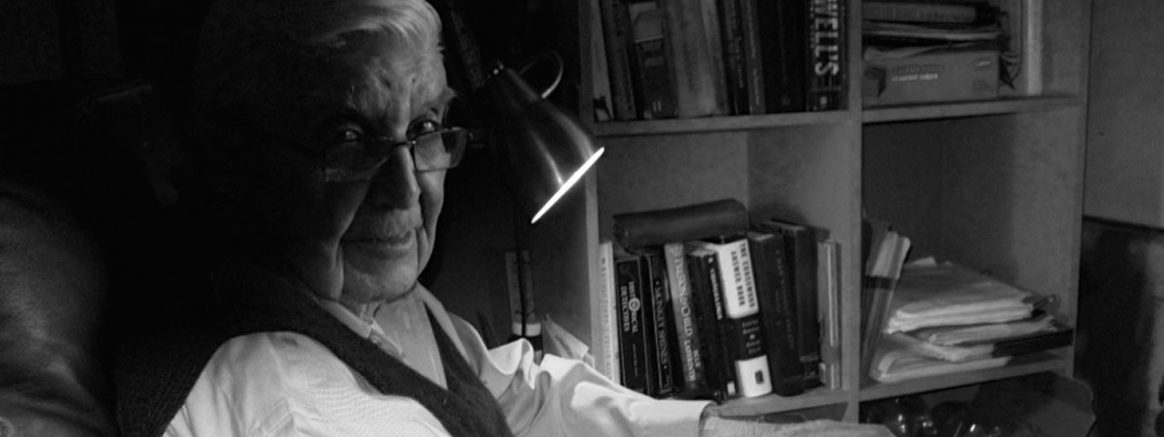
In the early 1970s, long before the days when Stephen King would have millions of Constant Readers, a man named Bill Thompson was King’s #1 fan. While working for Doubleday, Thompson was responsible for editing nearly all of King’s earliest books including Carrie, ‘Salem’s Lot, The Shining, Night Shift, and The Stand. But the role Thompson would play in Stephen King’s life was much more important than that of an editor. He was also a friend. When the first manuscript King submitted was not right for Doubleday, Thompson rejected it softly and with words of encouragement, asking King to send him whatever he was working on next. Eventually, Thompson would receive Carrie and instantly recognized it as the book that would be King’s big break. He not only championed for the novel to be published by Doubleday, he fought for it as though it were his own.
In short, Bill Thompson is the man who discovered Stephen King. John Grisham too for that matter, and a good handful of other authors. He is nothing short of a legend in the world of publishing, and the choices he made during his career changed the course of not only literary history but American culture as we know it.
In July 2018, I tracked down Bill Thompson to ask him about his history with Stephen King, and his life in publishing. It is my honor and pleasure to present to you Part 1 of this exclusive interview.
JS: First of all, I can’t tell you what an honor it is to be speaking with you today. How in the world are you?
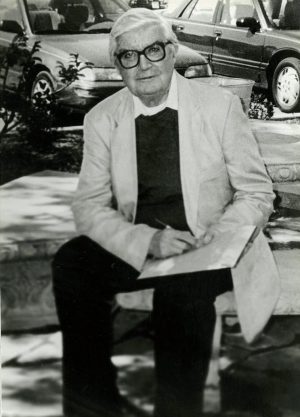
BT: I’m just grand!
JS: Tell me a little about the first time you ever came into contact with Stephen King. What was the first manuscript you read, and how did you come to read it?
The first manuscript from Stephen King arrived in a package that was addressed to the editor of a book called The Parallax View. This was a book I had not worked on, but rather inherited from another editor who had just left Doubleday. When he was dividing up his books, he said, “I want Bill Thompson to have The Parallax View, because that’s one book I’m proud of.” So I had nothing to do with acquiring the book or working with the author, but it was now my book to keep records on. And that is how the first manuscript from Stephen King came to arrive on my desk.
In his cover letter, he said that he had read and enjoyed The Parallax View, and that if I liked that one, I might like this one. The story was called Getting It On. I read it and thought: “Oh, this guy is good.”
JS: What made it good?
BT: It worked. He held it all together. This was a story about a kid who holds his class hostage. It was very good, but nothing really happened in it. It was mostly interior, all about how these characters changed and evolved under pressure. For me, it was very compelling, and it had the ring of truth to it in terms of storytelling. It was like you were right there. You were witnessing the entire thing.
JS: And of course, that story was later published as Rage under the pseudonym Richard Bachman in 1977.
BT: Yes, and the WGT you see on the dedication page is me. That’s the first contact we had, so he dedicated the book to me when it was published.
JS: Oh my gosh, I never knew that! How did you respond to King’s manuscript?
BT: He didn’t have a telephone at the time. So, I wrote back and said, “Let me introduce myself. I’m now the editor in charge of The Parallax View.” I don’t think I went into any detail about how I got it or from whom I acquired it. I said, “I liked Getting It On very much. I found some problems with it, and I’d like to pursue it here with publication in mind, but would you mind making a few changes?” I had some editorial problems with it, and I don’t even remember what those complaints were because I’ve seen the book in so many versions now.
Because he didn’t have a phone, we communicated through letters, but we got to know each other through those letters too. Ultimately, I turned down Getting It On, and I felt terrible about that because he had made the changes. The story just wouldn’t make it through our publishing board, which was quite savage most of the time.
I was barely tolerated by them because I had just moved over from sales. I had taken a cut in pay to get a job in editorial because I was determined to become an editor. I was the guy from sales who had spent a lot of time romancing anybody I knew was an editor there. I just couldn’t wait to join the editorial board and was constantly bombarding people with, “Here are 10 great book ideas!” Or, saying things like, “This book was great, but you should have done this instead of doing that.” I was making a pain in the ass of myself, so they all looked at me as “that editor who came from sales.”
JS: How old were you at the time?
BT: I was 27, or maybe 28.
JS: You really took a cut in pay just to become an editor?
BT: Yes. I also had to be transferred from New Orleans to New York, and this was a major complication because I was in a relationship. My hands actually broke out in hives. I went to the dermatologist and he asked me, “Are you about to make a big decision?” And I was. I took the cut in salary, but I never considered that a factor in making the choice. Someone was paying me to read books, and I never could get over that. That was just amazing to me.
And I have to tell you, being a salesperson at Doubleday was not appealing. We had no expense account. We got no mileage. We used our own cars. Everything came out of our own paycheck. We had to make three swings a year through our territories. My first territory was Arkansas and Northern Mississippi. I was responsible for book sales in that area, but I got promoted to New Orleans because I was doing so well. My territory quickly became all of Louisiana and Southern Mississippi.
JS: Why is it that you were so passionate about becoming an editor?
BT: Books. It was always books. There’s no ego involved in this whatsoever. There probably was, but it was certainly subterranean because I was comfortable with books. I understood books. Books, more than authors. I hadn’t dealt with that many authors. Like many of us, I thought of being an editor as some kind of ivory tower thing. You had to be trust fund, or you had to be Ivy League. I was a different species, as a former salesman with uppity ideas about becoming an editor. I had an eye though for spotting books that were good. And the beauty of it is, I had a real sense of the commercial as far as books were concerned. I knew what would sell and what would not sell.
JS: Boy, you sure did. It wasn’t just King you discovered but John Grisham and many other names as well. This talent that you have for not just spotting good authors but knowing the book that will give them their big break, where does that comes from?
BT: It really has to be the book. There isn’t anything else. Carrie was King’s big break. No doubt about it. You just knew it from the moment you read it. For an author’s first novel to sell 14,000 copies – and that was long before the movie ever came out, and before the paperback sale even – it was just extraordinary. I will take full credit for making enough in-house commitment to that book to make the salesman carry the bag into the store and insist they take an order. A book by an unknown author who had no track record and no credentials that was being touted by a maverick salesman who was now a self-styled editor, it was not a winning combination. But I will take credit for making it work and putting those pieces together.
JS: Getting It On wasn’t the only book of King’s you rejected though. There were others, yes?
BT: Oh, yes. The Body was a 40-some page novella, which I unfortunately had to turn down because there was nothing I could do with it at Doubleday. I didn’t turn the story down. It was a fine example of King’s writing, but what can you do with a 40-page short story? It’s too long for a short story and too short for a novel. So, you just have to hold onto it. That was one. And there was Roadwork and The Running Man. I don’t know if I formally rejected any of those. I just waffled on them and said these are not right at this point.
JS: At what point did King send you the manuscript for Carrie?
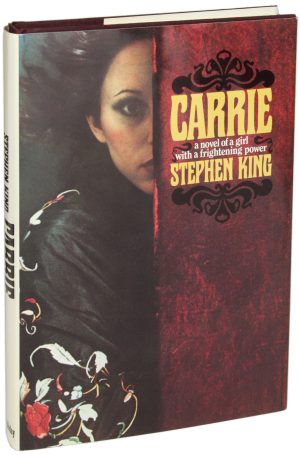
BT: Well, we had lost touch for a while. I hadn’t heard from him in several months, but I knew he was going to be successful. I knew he was going to make it. I wanted to reach out to him. We both liked really trashy country music, so I got him a country music calendar. Now, I don’t know if you know this, but Stephen King’s birthday is the same day as A.P. Carter’s, who is the patriarch of the Carter family. I sent him this calendar and said, “Did you know that your birthday is the same as A.P. Carter’s? What have you been doing lately? I don’t want to see your name on a bestseller list for Simon and Schuster.”
So, he sent me Carrie. He said, “Tabby fished this out of the wastebasket. I don’t think it’s any good at all but go ahead and give it a read.”
JS: Did you love it immediately?
BT: I thought it worked all the way up to the end. In the first draft, when the prom explodes, Carrie turns into a giant figure. Literally. She develops horns. Lightning comes from her finger tips and she blasts an airplane out of the sky. I felt strongly that he needed to get rid of that ending and turn it into something just as lethal but not a comic book. This is a girl who has had a cruel and humiliating trick played on her. She’s had bottled up rage inside of her since she was probably 6 years old, and now she’s going to explode. But it’s not going to be by horns and lightning from her finger tips. She’s going to do things like knocking over the electric current onto a pile of rags. She’s going to raise hell and she’s going to not care about what happens. She’s not really out to kill anyone. She’s just releasing this pent-up animosity, frustration, shame, and all those other feelings that have been thrusted upon her by the people she’s encountered.
JS: Well, he certainly made those changes.
BT: Yes, much to my satisfaction and delight. I then worked like a dog to get it published. To get a contract to publish a book was extremely difficult. You know, you have this manuscript that you’re passionate about and you love. Now you must get three supporting readings. So you go to your editor friends who have to agree that it’s wonderful.
Then you go to the business department and say, “I want to give this guy $5,000 for this book and it’s going to be 240 pages and 5 ½ x 8 ¼ and I know we can sell 20,000 copies.” They say they can publish it at $4.95 if those numbers are true.
Then you go to sales and say, “I want you to advance 15,000 copies of this novel.” Sales will say, “Are you kidding?! For a first novel by an unknown author? We’ll be lucky if we get 5,000 out there.”
At any rate, you put all your pieces together and hope it adds up and works out. In the end, we got a contract for the book. $2500 for King. At one point, I had to cut that number back just to get it approved. I raised it back up to $2500 after it was approved, but it was only approved at $1500.
JS: How did you give him the good news?
BT: I sent him a telegram that read: Bingo. Carrie officially a Doubleday book. $2500 against royalties. Call for glorious details. Congratulations. The future lies ahead. Love, Bill Thompson
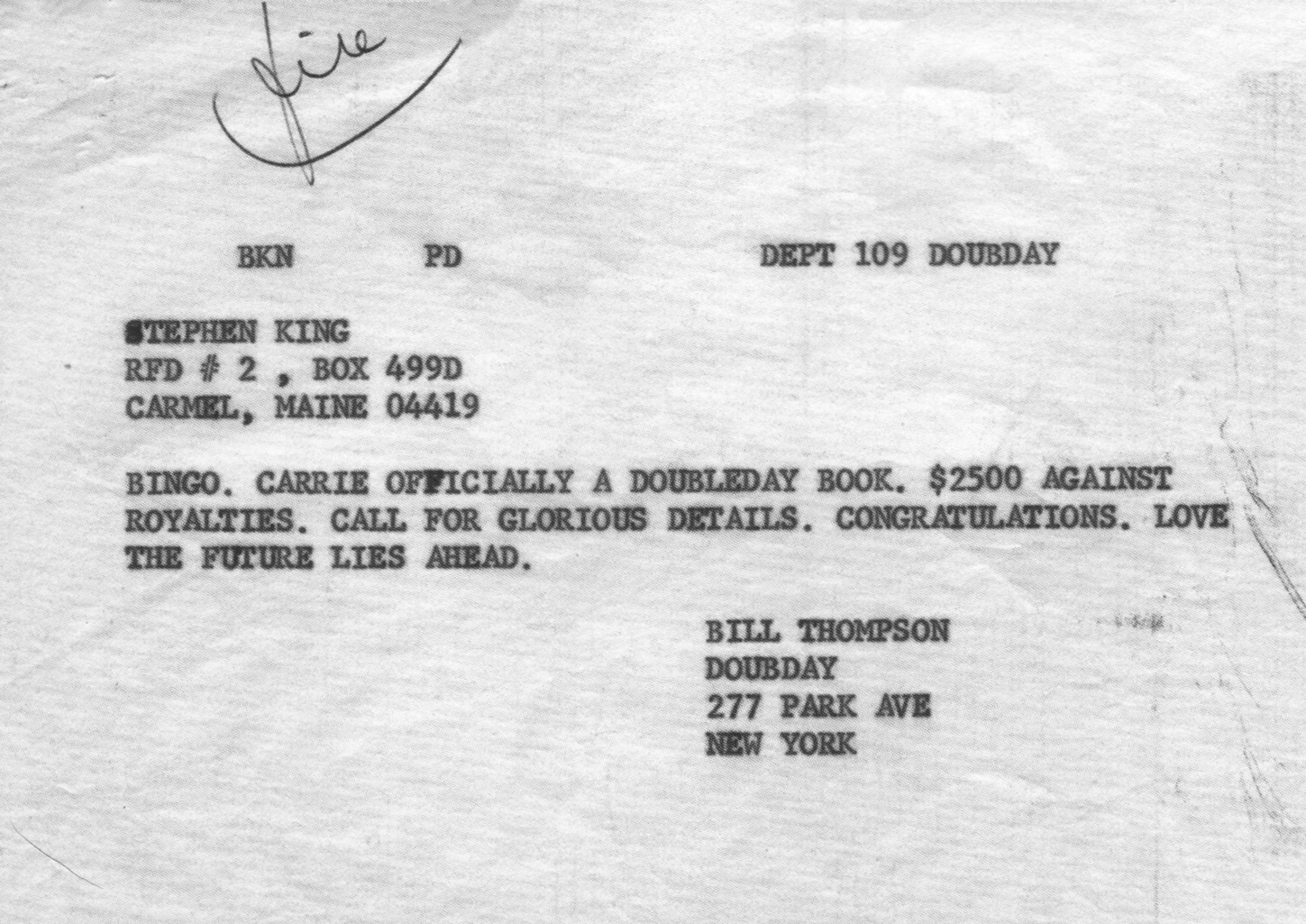
Original telegram from Bill Thompson to Stephen King informing him of the sale of “Carrie” appears courtesy Cemetery Dance Publications.
JS: That’s history in the making, right there.
BT: This was just a triumph, for both of us really. We both felt euphoric about it. “We did it, we did it! We got a contract for you. $2500, isn’t that terrific?” And, of course, that’s just where the story begins. The paperback sales would be so much more. But we did not know the future at that time, and we were in the middle of a euphoric moment of celebration.
JS: I’m guessing by the time the paperback sale happened, he had a phone.
BT: Yes, he did! I remember that day very clearly. I first received a call from our rights department saying a UK publisher had visited the night before. That’s the way it worked. The foreign publishers would show up at a US publisher’s office and they would deal with the rights people. They’d ask, “What have you got that you’re not showing anybody else? What do you think is going to be the next big thing?”
Well, there was an individual who worked in the rights department. His name was Bob Banker. He was one of the people I had asked for a supporting reading because I’d asked for editorial support on Getting It On, and that didn’t really do the trick. So with Carrie, I decided to try a different tactic. I went to sales and advertising and rights to get enthusiastic reports from them on what they thought they could do with the book. Bob loved the book and remembered it when the British publisher was visiting. He said, “This is really quite good.” So, the English publisher took it away, read it that night, and the next morning called and said, “We want to buy this. I have permission to go to $400,000.”
JS: Wow!
BT: (laughs) Everybody was stunned. I was stunned. I mean, you’re just hoping that the next level will be some kind of decent sale or a nice advance. But this was epic. This was the deal that established Stephen King. Very often it’s a movie coming out that will do it, in terms of establishing a future career. And certainly, that did help with King eventually! But internally, this early paperback sale before anybody else had seen it for $400,000 was going to ensure that there would be future novels published.
JS: Where were you when you got the news?
BT: It was Sunday morning. I was single at the time, living in lower Westchester. I had fixed coffee and was reading the paper. Bob Banker called and said, “We have a $400,000 offer on Carrie.”
I said: “Take it.”
I was dazed. I was absolutely dazed. I wanted to do a tap dance, but I wanted to hug King at the same time because this was good news that we were both sharing. I was trying to think, how in the world can I convey to him the pleasure that I’m feeling here so that he’ll remember this moment?
So, I called him and asked, “Are you sitting down?”
He said yes.
I said, “I want you to take a pencil and paper and write down what I tell you.”
He said okay.
I said, “Write a zero. And then moving from right to left, add another zero. Now add a decimal point. Now add another zero. Add another zero. And another zero. (long pause) And a comma. And another zero. And another zero. And a four. And a dollar sign. Now read to me what you’ve got in front of you.”
He said, “Four hundred thousand dollars.”
I said: “That’s what Carrie just sold for to New American Library.”
JS: I’m literally in tears, just hearing this story. Oh man, What was his reaction?
BT: We were both very quiet as I recall. A sort of stunned silence. I was celebrating the moment with him, and he was celebrating the moment with me.
JS: How unheard of was it in those days for a new author to get $400,000 before a book has even been released?
BT: Oh, it’s really quite unusual. Even today. They might get a sale, but not a sale of that size. That was close to half a million. It was an extraordinary event. It really was.
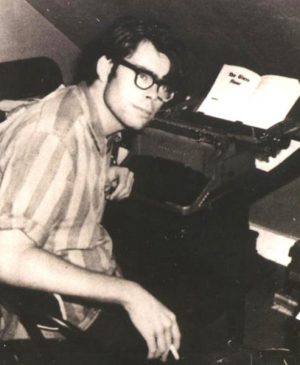
JS: It must have just cemented for that family: This is what Steve is meant to do. You have to think of all the suffering and hand-to-mouth living they went through to get to this point. He was turning down night jobs to spend every evening churning out story after story on Tabitha’s typewriter in the garage. Selling stories to men’s magazines that would pay just enough to cover the cost of medicine for the kids’ ear infections. You had to have doubts in those days, you know? And then suddenly, here it is. Destiny comes calling.
BT: He was committed. When he was 12 years old, he decided this is what I’m going to do for the rest of my life. That was the turning point for him. That was truly when he became an author.
JS: Can you recall the first time you saw Brian de Palma’s film adaptation of Carrie?
BT: I saw it in pieces because they had just gotten rushes. Steve and I saw it together in a theater at the studio office. We were sitting right behind Neil Simon and Candice Bergen. There were many famous people there. But the only segment that we saw was the prom scene. We saw the entire prom scene as it was released, although it hadn’t been attached to the other part of the movie yet. I enjoyed it thoroughly. I thought they were never going to be able to do justice to the book, and yet I couldn’t find fault with it.
JS: What was King’s reaction to it?
BT: We were both movie fans, so we were dazzled by seeing it in a private room on a studio lot with celebrities. It was a peek behind the glitter and swank of showbiz.
JS: Was everyone at Doubleday on their knees thanking you after it was announced that Carrie was going to be a film?
BT: Not really, and that didn’t bother me. My situation at Doubleday had already quadrupled since the novel’s release, so it was very good for me, but I never got fat on that. I really wanted the movie to be a smash and I was not convinced that it would be. Steve was really hoping we would get Brian de Palma, and I thought, “Who?” I had to look him up. He had only made a couple of movies. I didn’t know who Larry Cohen was either, or Sissy Spacek. These were all relative unknowns, so that was worrisome to me.
Unlike The Shining which, when it came to us, already had Stanley Kubrick attached.
JS: King has said on countless occasions that he was less than thrilled with Kubrick’s adaptation of The Shining. How do you personally feel about it?
BT: I thought it was fine. I really did. I wasn’t sure about the ending. In the first version of the script that we received, Jack killed Wendy in the end. I told them, ‘No, you cannot do that. She can’t die. We must have her alive at the end.’ We had a little tussle over that, but eventually they agreed with me that she should be alive in the end.
JS: They being, Stanley Kubrick?
BT: No, the producers. We were having a very costly lunch at the Plaza Hotel with Mary Lou Johnson and the money men behind the project. They had acquired the movie rights and they had acquired Stanley Kubrick, so they were now talking to Steve and myself about putting together a deal. The agreement they were offering him seemed fair enough to me, and he didn’t have enough muscle at this point to ask for more.
In fact, they came back to Steve after Jack Nicholson came on board. They said, “Listen Steve, we’ve got Jack Nicholson, but we can’t afford him unless you take off 1%.” They wanted to give Steve 4% instead of the 5% they had originally promised him. Steve asked me, “What do you think?”
Nicholson was so hot at that point. I thought: What a parlay, Kubrick and Nicholson! I said, “Take it! Take it!”
Unlike the film adaptation of Carrie, which needed word of mouth to become a success, The Shining had its own legs right away because it was a big budget motion picture starring Jack Nicholson and directed by Stanley Kubrick. The ground rules for something like that are very different. I didn’t have any quarrels with the changes they made from the book to the film. This happens with movies all the time.
Next month: Part 2 of our interview with Bill Thompson, the man who discovered Stephen King. In the meantime, you can visit Bill Thompson’s official web site at BillThompsonEditing.com, where he offers his expertise and editorial services, as he continues his legacy of work with up-and-coming authors.
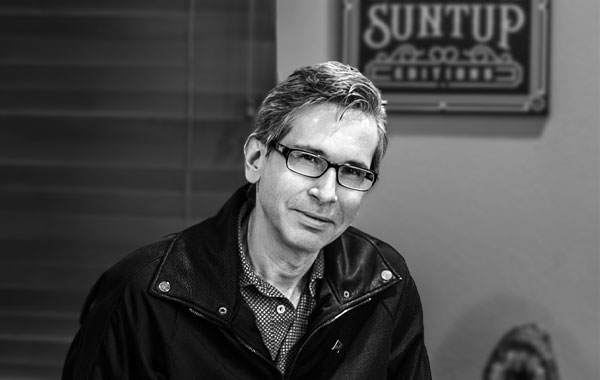

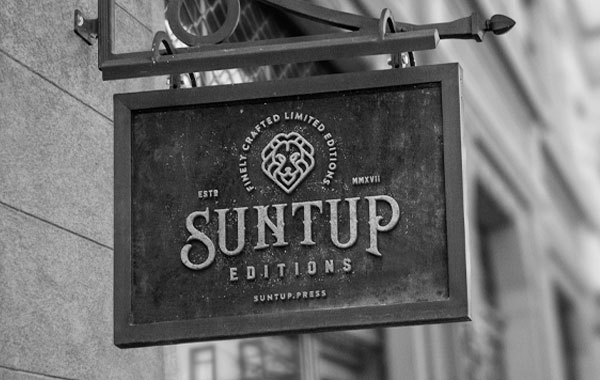
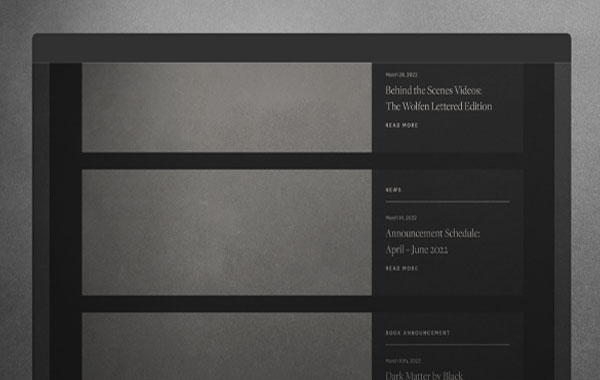
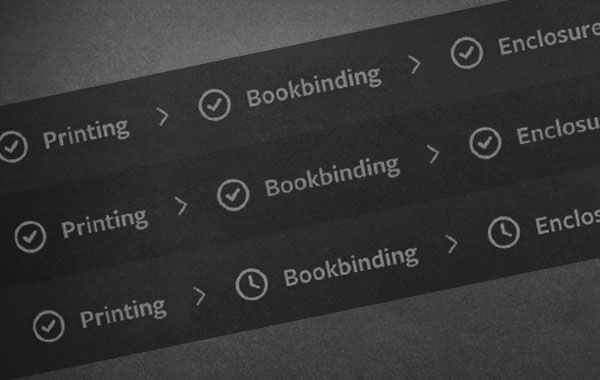
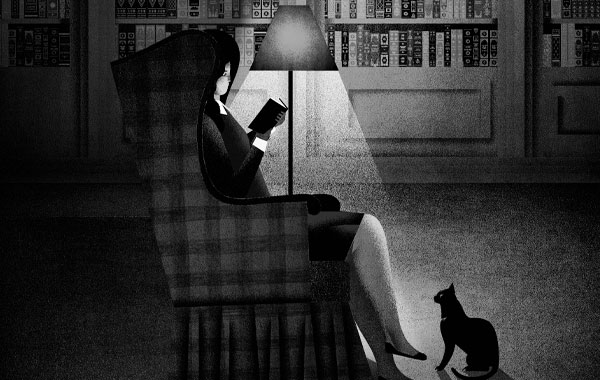
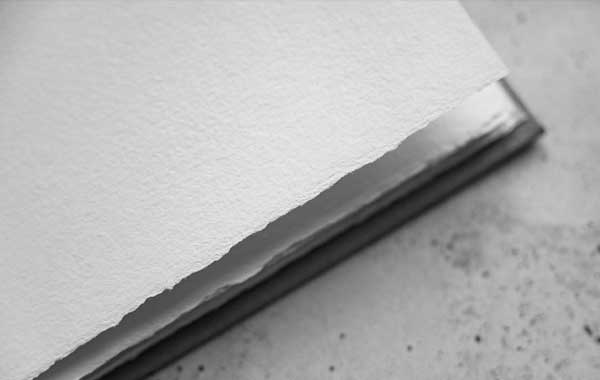
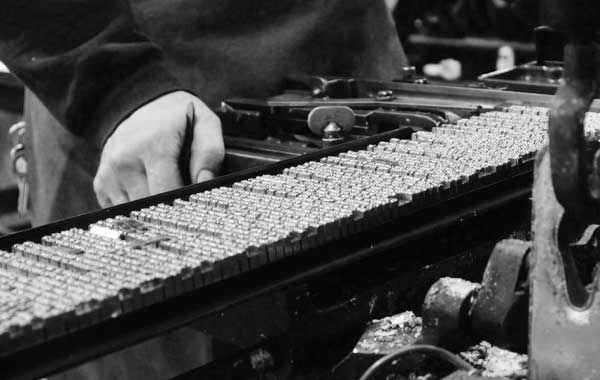
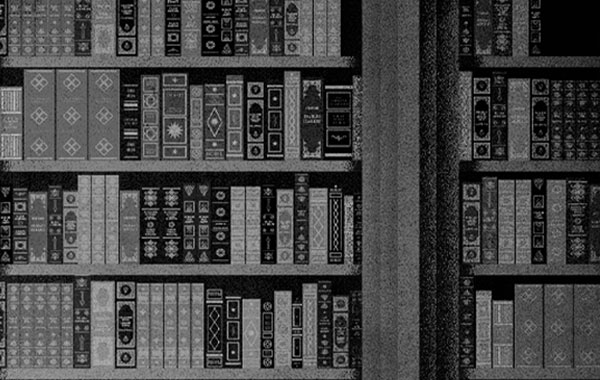

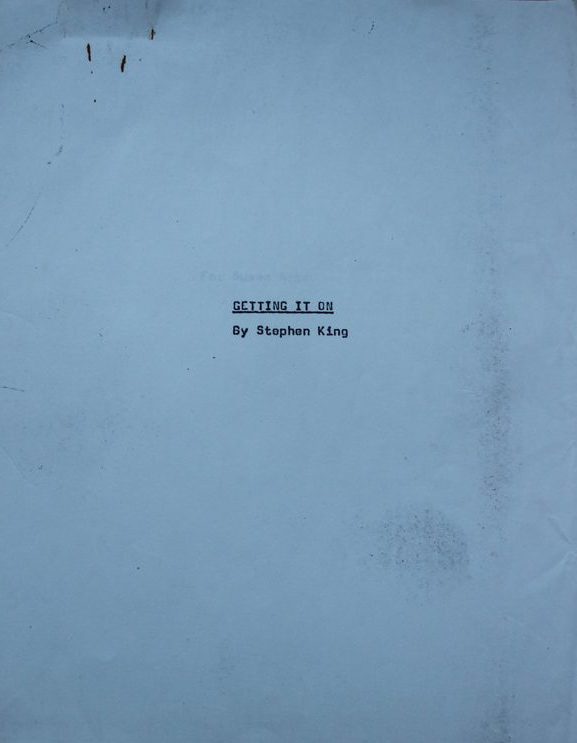

Joe Manning
What a treat to pick the brain of a true literary legend! Look forward to part II.
Jason Sechrest
Man, you said it. A giant in the world of publishing. It was a rare treat indeed. I’ll never forget it.
Steve Sargent
What a brilliant and entertaining interview – I thoroughly enjoyed it. You don’t often think of editors as heroes, but we have one here. Can’t wait for part two!
Jason Sechrest
Agreed. Bill Thompson is a genuine hero.
Marc Goldfinger
Thank you for providing the insight into the mind of the man, and first Constant Reader of Stephen King, of Bill Thompson. Pure genius!
Jason Sechrest
Thank YOU, Marc! Glad you enjoyed it.
Phill Warren
What an absolutely fascinating interview. Loving this series.
Jason Sechrest
Thanks for reading, Phill!
Club Stephen King
Thanks Jason for sharing that interview. This first part alone is very interesting, and now I cannot wait to find out the followup.
Will it be in 2 parts or more?
Jason Sechrest
2 parts. The next will pick up right at the second novel, ‘SALEM’S LOT and take us on a tour through all the books Bill edited of Stephen King’s. Plus a few fun detours along the way.
And thanks, as always, for all your support and your retweets Club SK. It does not go unnoticed. I really appreciate it.
Lou Sytsma
Awesome interview!
Thanks Jason!
It’s great to learn something new about King after all these years of being a constant reader.,
Jason Sechrest
Thanks Lou!
Lou Sytsma
Wonderful interview! Great to learn new things about King! Thankee sai!
Bryant Burnette
Terrific interview! Thompson’s role in King’s career probably cannot be overstated, and this interview with him is an instant classic. Thanks for doing it!